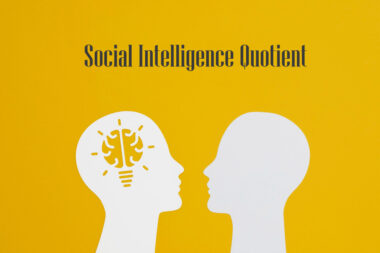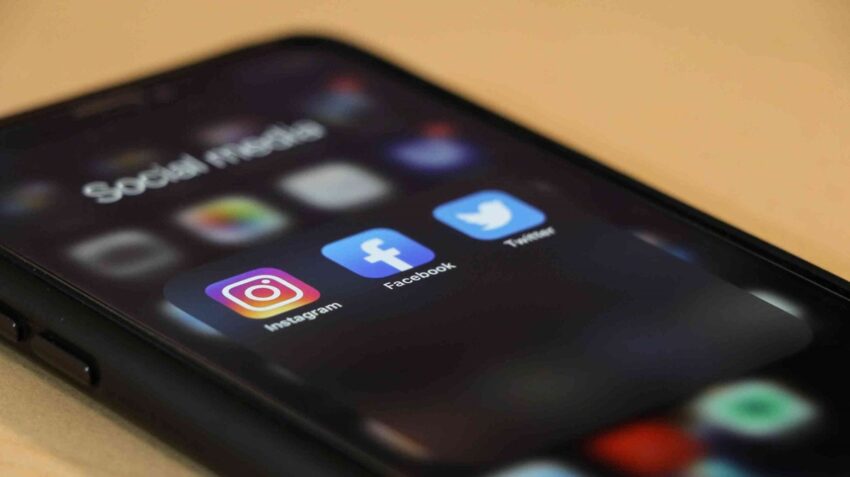According to 2024 global social media statistics, 94.2% of people who use the internet also have some form of social media and each person spends approximately 2 hours and 23 minutes using social media daily. However, of these 5 billion people who use social media globally, how many are making a conscious effort to navigate their social media use with self-compassion?
With constantly evolving social media platforms, plenty of research has documented negative effects of social media use on physical and mental health. However, social media can also be a positive tool, as it offers opportunities for connection, readily accessible expert information, and self-expression.
Navigating social media with self-compassion is the key for combating the negative effects and enhancing the positive effects of social media. Read on to learn what self-compassion is and how to practice self-compassion within your online presence.
Understanding Self-Compassion
Upon instinct, one might equate self-compassion with self-esteem. However, where self-esteem is the roller coaster of ego that can be easily influenced by the opinion of others, self-compassion is the well-paved, reliable path one can smoothly and independently navigate with confidence.
As described by Kristin Neff, self-esteem requires an ongoing evaluation of oneself with direct comparison to others. A focal point to self-esteem is needing to feel perceived as special or above average compared to others. This perception can easily fluctuate by the influence of and comparison to others.
On the other hand, self-compassion does not involve self-evaluation or comparison to others. Self-compassion consists of three essential components: the ability to treat oneself with kindness, recognize a shared humanity, and remain mindful even when reflecting on negative aspects of oneself.
This 2011 research shows that compared to self-esteem, self-compassion provides greater emotional resilience and stability, even in moments of failure, inadequacy, and imperfection.
Challenges of Practicing Self-Compassion on Social Media
Social media presents a seemingly inescapable but well-curated highlight reel of other people’s lives. If this constant stream of content is not consumed through a lens of realism and self-compassion, frequent consumption may result in negative impacts on mental well-being.
These negative impacts include increased feelings of anxiety, depression, loneliness, psychological distress, and overall poorer mental health. Social media consumption may also result in poor sleep quality, which can further exacerbate symptoms of psychological distress.
Using social media also lends itself to increased opportunities for cyberbullying, comparison to others, dissatisfaction with body image, and the fear of missing out (FOMO), all of which are associated with decreased life satisfaction.
Constant digital distractions may make self-compassion more difficult, but by implementing the following strategies, we can reduce the negative effects of social media and enhance positive outcomes.
Strategies for Practicing Self-Compassion on Social Media
Practice Self-Kindness
The cardinal rule to practicing self-kindness is to treat yourself as you would a close friend, spouse, or family member–regulate your inner-critic.
One way to practice self-kindness is to avoid negative self-talk at all costs. Avoid statements such as I can’t believe I did that, I’m such an idiot, when will I ever learn?…etc. Consciously rewrite these thoughts to focus on your strengths and how to improve, such as I am strong enough to handle this, or I learned a valuable lesson from this.
Additionally, forgive yourself for past mistakes. Mistakes are a part of being human. Rather than dismissing or repressing negative emotions associated with mistakes, allow yourself to feel the emotion without incessantly dwelling on it. Then, determine how you will learn and grow from the mistake.
Recognize a Shared Humanity
Recognizing a shared humanity is about becoming consciously aware of your own life experiences and the experiences of others. While we all wish to be happy, healthy, and carefree, understanding that occasional struggles and suffering are normal, unavoidable experiences in life will help us cope with our own difficulties and establish common ground with others.
Recognize and embrace that the world is made up of people from all cultures, backgrounds, appearances, and experiences to strengthen a sense of shared humanity. When we encounter people who expand our comfort zone or are experiencing suffering in their own life experience, it may feel more comfortable to dismiss, avoid, or become frustrated by them.
However, while we don’t have to bar any important personal boundaries or drain our emotional reserves by devoting our time to others, we can try to remember that others are often trying their best or experiencing obstacles we are unaware of and that we are all human despite our differences.
Increasing Mindfulness
We can increase mindfulness in several ways, contributing to self-compassion and overall contentment.
Implement a regular meditation practice to actively connect with your body, thoughts, and emotions in a given moment, such as first thing in the morning, when winding down at night, or in a predictable, quiet break in each day. If negative feelings arise, do not dismiss them or dwell for long periods on them. Instead, stay present and aware, allowing the feeling to come and go without judgment.
Practice explicit gratitude towards what matters most to you in life. Write down or self-reflect on things you are grateful for daily, celebrate life’s big and small wins, and explicitly express gratitude towards family and friends to foster your relationships.
Create Boundaries and Limit Consumption
Finally, make a conscious effort to recognize whether your social media consumption is healthy or whether you would benefit from creating boundaries and limiting your online consumption.
An example of healthy social media consumption includes following people who encourage you to be your best and provide valuable educational information or resources for self-improvement.
You may mitigate unhealthy consumption and create boundaries by unfollowing or unfriending accounts that exacerbate negative experiences, such as FOMO, body image dissatisfaction, cyber bullying, or comparisons resulting in feelings of inadequacy.
As stated, the average time spent on social media daily is two and a half hours. If you are over this average and noticing some of the listed negative effects of social media, it may be time to limit consumption.
Limiting consumption may involve scheduling explicit digital detoxes through a get-together with friends, a walk through nature, or a community event. You may also benefit from strategically managing notifications to decrease a constant bombardment of comparisons.
Positive Effects of Practicing Self-Compassion on Social Media
Regularly implementing these self-compassion strategies will enhance the positive effects of social media use. Positive effects include reduced symptoms of depression and a strengthened sense of self-expression and self-identity. Consuming social media content with self-compassion can also expand and strengthen our offline community and relationships, providing increased opportunities for human connection and emotional support.
These positive effects are further supported by a 2021 study, showing that navigating social media with self-compassion was associated with less problematic social media use and less FOMO. Practicing self-compassion resulted in more stable emotional responses and more positive overall online interactions.
So, the next time you access social media, foster self-compassion and enhance these positive outcomes by practicing self-kindness, recognizing a shared humanity, increasing mindfulness, and establishing boundaries or limiting consumption as needed.
References
Chaffey, D. (2024). Global social media statistics research summary 2024. https://www.smartinsights.com/social-media-marketing/social-media-strategy/new-global-social-media-research/#:~:text=More%20than%20half%20of%20the,social%20media%20is%202h%2023m
Danesi, A. (2024). When the grass isn’t greener: Find contentment in the now. https://ameliadanesi.com/when-the-grass-isnt-greener-find-contentment-in-the-now/
Neff, KD. (2011). Self-compassion, self-esteem, and well-being. https://compass.onlinelibrary.wiley.com/doi/abs/10.1111/j.1751-9004.2010.00330.x
Phillips, WJ & Wisniewski, AT. (2021). Self-compassion moderates the predictive effects of social media use profiles on depression and anxiety. https://www.sciencedirect.com/science/article/pii/S2451958821000762#:~:text=In%20contrast%2C%20self%2Dcompassion%20was,online%20interactions%20and%20emotional%20responses
Sadagheyani, HE & Tatari, F. (2020). Investigating the role of social media on mental health. https://www.emerald.com/insight/content/doi/10.1108/MHSI-06-2020-0039/full/html?utm_campaign=Emerald_Health_PPV_Dec22_RoN
The undesirable impact of social media platforms on your general well-being. (2023). https://healthystic.com/news/impacts-of-social-media-platforms-on-general-well-being/

Hi! I’m Amelia, a health and wellness freelance content writer. I aim to bring awareness to the ways our health and mental well-being are influenced by the intersection of body and brain with a particular focus on communication and human relationships. I graduated from Indiana University with a bachelor’s and from the University of Arizona with a master’s and have a professional background in speech-language pathology.
My website: ameliadanesi.com





































Leave a Reply